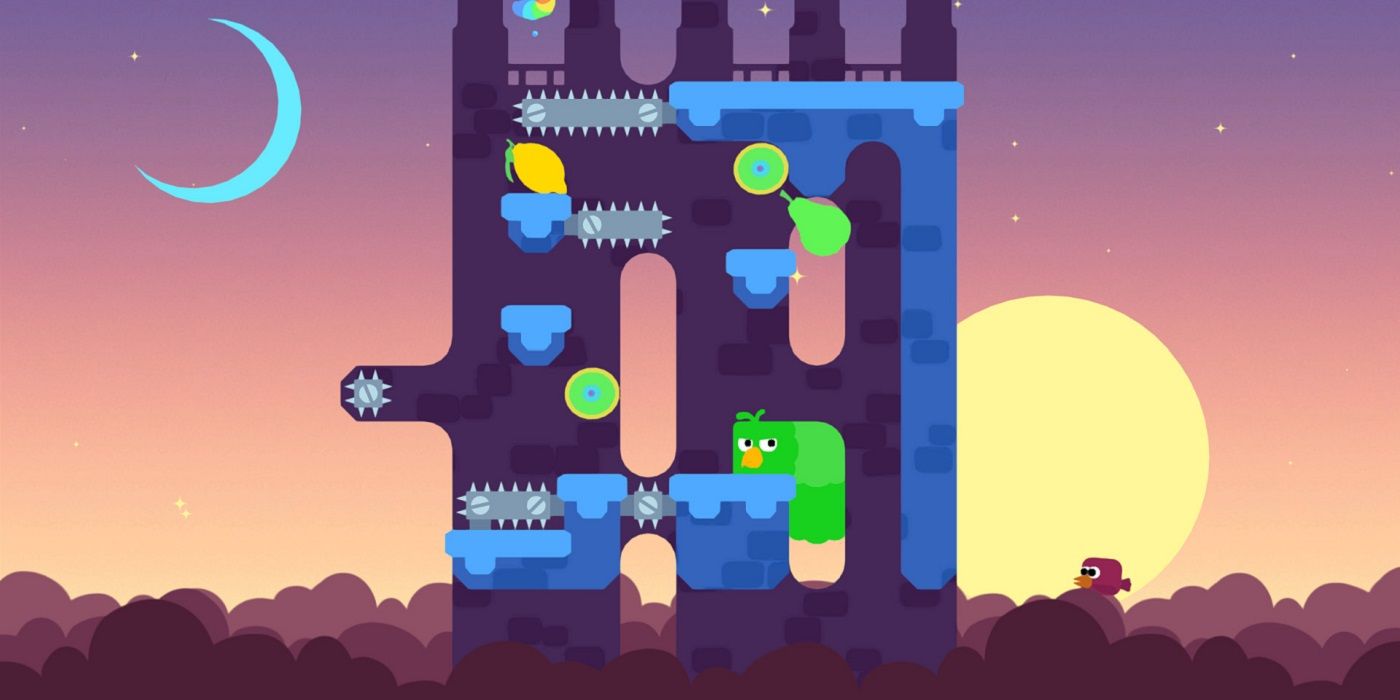
When puzzle games come up in conversation, many will leap to the falling blocks and familiar chiptunes of a game like Tetris. While arcade-style puzzlers are a definite cornerstone of the genre, video games have provided a whole host of experiences that would also fit under that descriptor. Elements from the genre are in almost every AAA game, even if it's just something like Mass Effect's hacking mini-game breaking up levels of endless action. Games more focused specifically on puzzling have come up with numerous ways to tickle player's minds without resorting to decades-old tricks. From story-based mazes to mind-bending surrealism, puzzle games have never been more diverse than they are in 2021.
Even Tetris itself has seen a variety of new styles since most got their first taste of it on Nintendo's Game Boy. In the last few years, players could load up a Nintendo Switch for Tetris 99, a multiplayer-focused battle royale take on the falling block puzzler. There's Tetris Effect, a meditative puzzle experience from the minds behind fellow block puzzle game Lumines. Tetris has even teamed up with Sega's Puyo Puyo franchise for a pair of crossover puzzlers with anime-inspired campaigns and unique gameplay hooks.
With the kind of everlasting popularity that Tetris has, it can be hard for any other game to shine when they're doing something different. There are plenty of games that remix Tetris in one way or another, but that's not all that the puzzle genre has to offer. Whether it takes concepts from another category or simply delivers an evolution of a classic design, puzzle games can be relaxing vacations from other genres. The best games of the bunch deliver a fair challenge that never overwhelms the player. Here are some prime examples of where to go after dropping one too many Tetriminos.
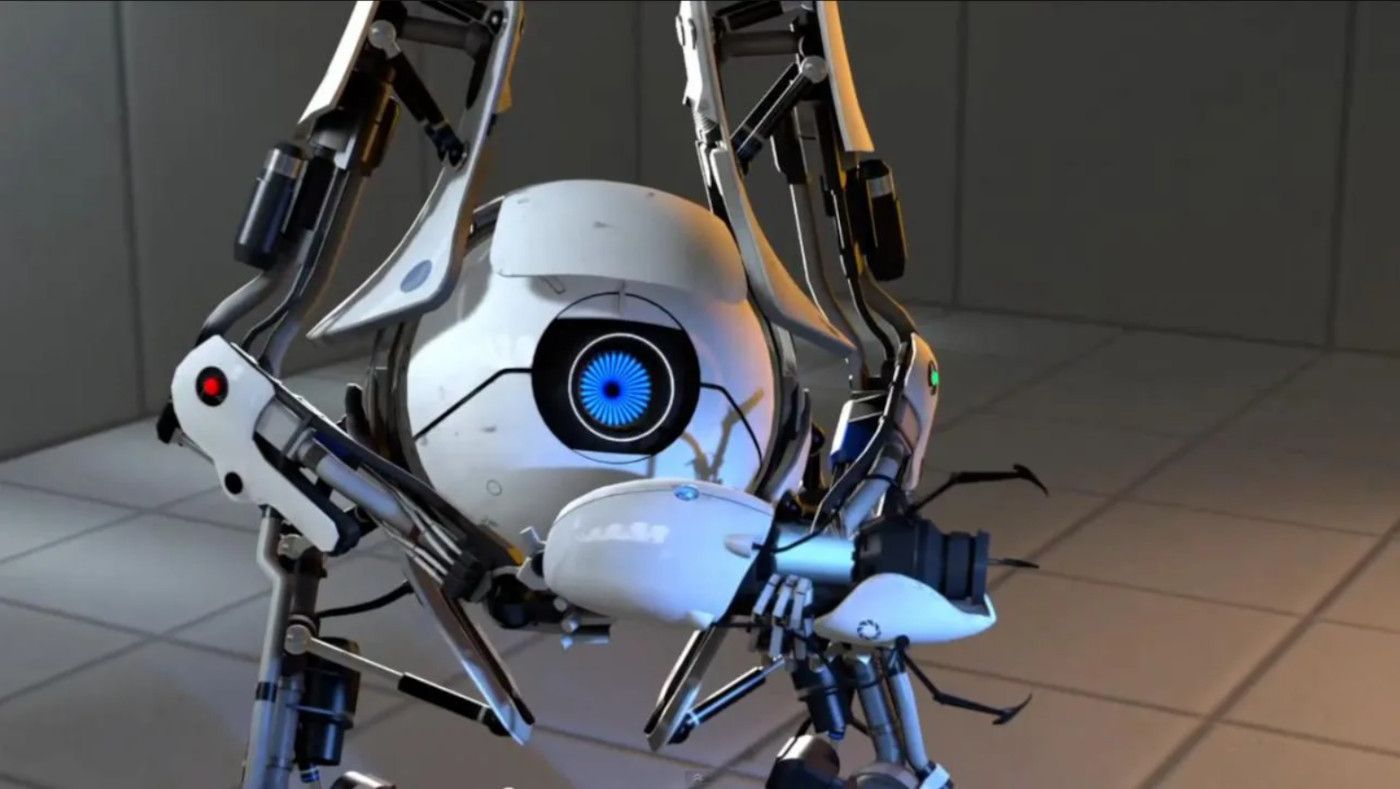
Almost a decade ago, Valve released Portal 2, a first-person shooter that traded in bullets for a portal gun and enemies for huge bottomless pits and fountains of gel. Navigating through the halls of a decrepit science facility while following along with a tight narrative, Portal 2 brings together the best of a traditional gaming campaign with the best of puzzle games in a way that still hasn't been matched. The fact that the game is genuinely funny on top of everything is just icing on the cake.
Portal and its sequel are not only amazing games on their own, but they formed the basis for a whole new style of puzzler. First-person puzzle games all have players exploring and manipulating an engrossing environment with some sort of reality-warping tool or power. While some take more inspiration from the halls of Aperture Science than others, it's easy to see the subgenre's evolution just by comparing recent hits like Superliminal and Manifold Garden with Valve's initial release. The mind-bending levels in recent efforts make jumping through portals feel like child's play, although most Portal-likes can't compare to Valve's signature wit and humor.
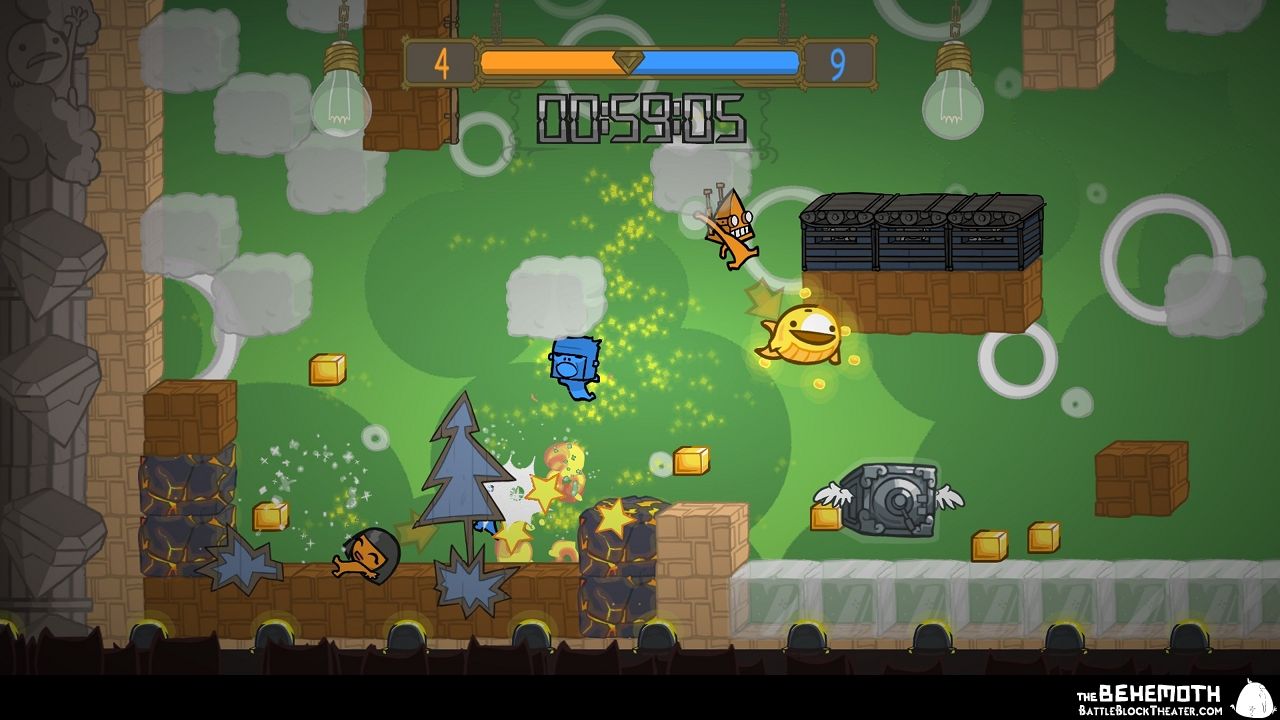
2D platforming also makes for a great mix with puzzle games. Although this particular genre has been done to death on the indie scene, there are still shining examples of why it works so well. One of the best is BattleBlock Theater, a comedic race through a theatrical obstacle course brought to you by the minds behind Castle Crashers. Teaming up with a friend to find the fastest way to beat levels (and gain a bevy of cosmetic character heads) is a great time that exemplifies the best of what works with this genre combination.
Other examples in this vein typically slow things down, but not to a crawl. Recent EA Original It Takes Two is a well-received and colorful puzzle platformer that has a co-op focus. Solo players looking for more of a challenge may want to check out Celeste, a game where the puzzle isn't so much in how one gets to the end, but how they do so without dying.
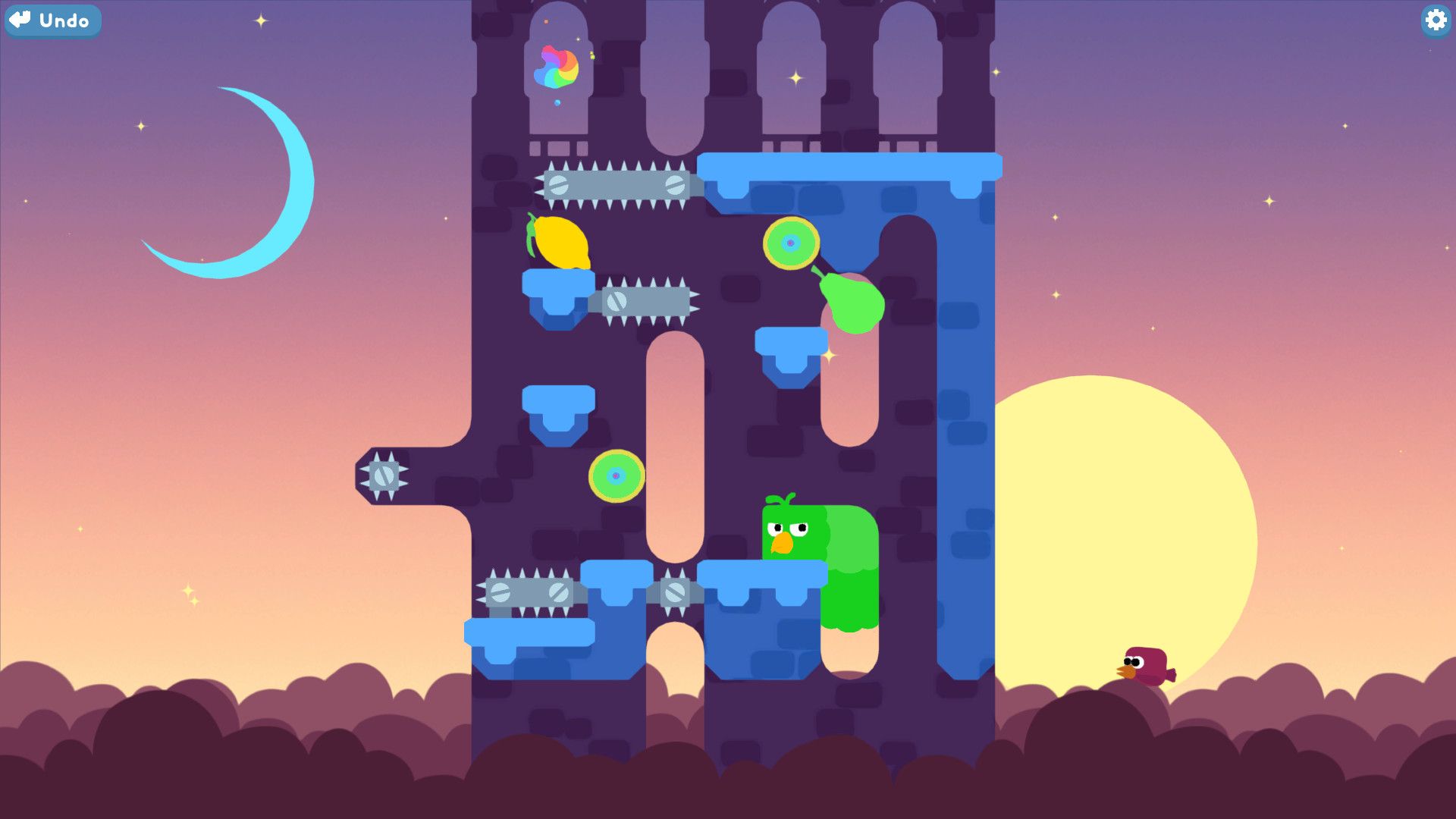
One of the reasons Tetris appeals to such a wide audience is that it dispenses with any narrative pretense. The falling blocks can carry any theme (or no theme) as long as the gameplay sticks to a strict set of established rules. Games like this tend to play out more like board games than video games, just without all the setup. This is a pure puzzle experience, and good examples outside of the line-matching space are few and far between. However, the indie boom of the last decade has produced a few prime examples, including Snakebird.
Each turn counts for a lot when controlling these limbless avians in their quest to grab fruit precisely placed just out of reach. The rules are deviously simple, but the levels quickly require intense studying to figure out. In fact, the original game was such a challenge that the developers created an entire second game with a lower skill ceiling and now recommend that players tackle them in reverse chronological order. At any difficulty level, Snakebird is the antithesis of an arcadey puzzler like Tetris, providing a set of challenges that keep players guessing in short but addicting sessions over a long stretch of time.
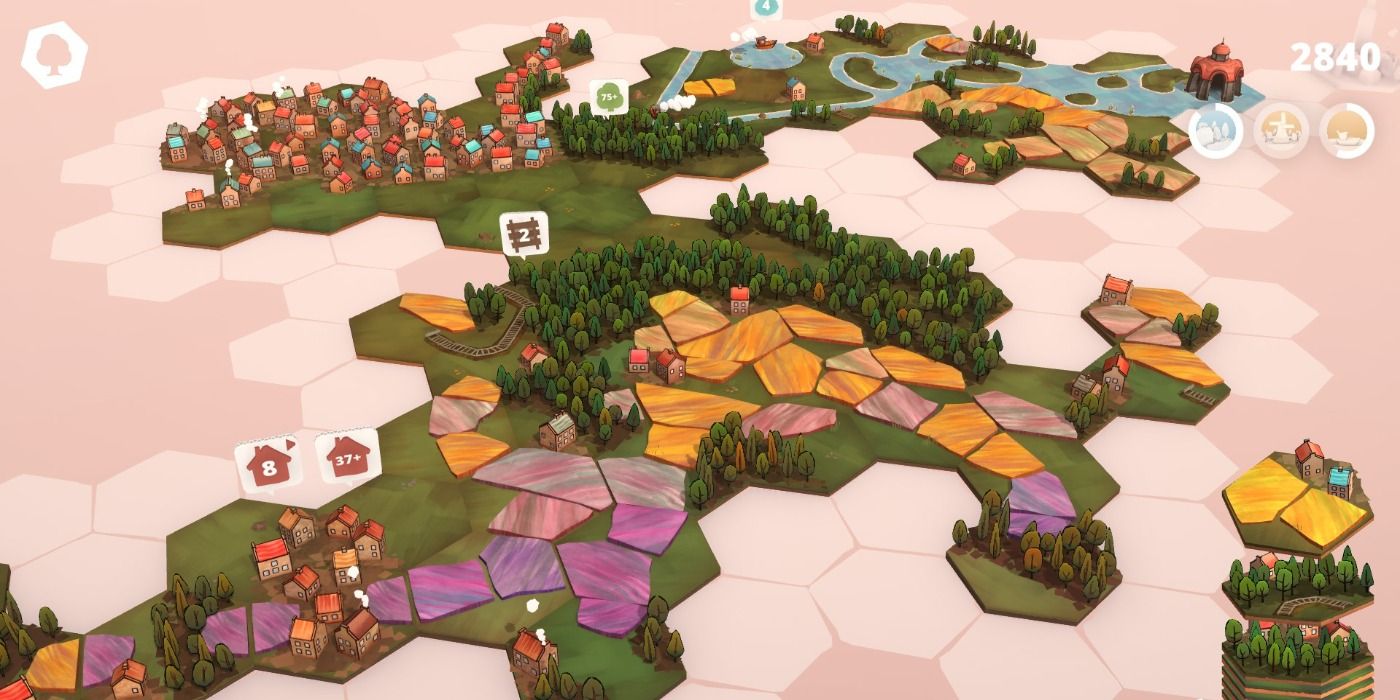
Sometimes, it's not about the challenge or the competition, but simply the vibes. Games like the recent Dorfromantik present simple logic rules and a relaxing atmosphere, letting players go at their own pace and enjoy the scenery. While there is eventually a fail state, it can take a long while to get to that point, and creating the artistic landscape one tile at a time is a rewarding enough experience on its own.
Several puzzle games, including a lot of early works by PopCap, include Zen modes that can achieve a similar experience in an otherwise score-chasing game like Tetris. Matching tiles in Bejeweled without worrying about failure can be a great time-waster, although modes like this made more sense when there wasn't a flood of games releasing on the regular vying for each player's attention. Like with most genres in 2021, there's now typically a varied puzzler out there that matches up with any player's need.
from ScreenRant - Feed https://ift.tt/3zP2tmN

No comments: